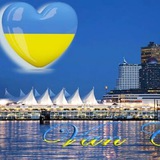My name is Mariia Karlenko and I am writing this letter on behalf of the Ukrainian community leaders and Ukrainian cultural ambassadors in Metro Vancouver to express our deep concern and displeasure regarding the upcoming art exhibition of the Russian activist art group Pussy Riot at The Polygon Gallery. The exhibition “Velvet Terrorism: Pussy Riot's Russia” is going to open on the 21st of March. While we hold the Polygon Gallery in high regard for its incredible art exhibitions, cultural events, and excellent service, we feel compelled to address the insensitivity and untimeliness of hosting this exhibition.
Allow us to provide some context regarding Pussy Riot. They are a Russian feminist activist art collective that gained fame following their controversial performance in one of Moscow's churches in February 2012. This performance led to the imprisonment of several members for nearly two years. The group resumed their undertakings upon release. However, their recent activities have raised serious concerns, particularly given the ongoing war in Ukraine. Despite the gravity of the situation, Pussy Riot has chosen to exploit the attention to the war in Ukraine to further their own artistic career, staging exhibitions and performances around the world.
For instance, within a short span of time, Pussy Riot held more solo exhibitions than in the entire period from 2014 to 2022. This opportunistic approach undermines the gravity of the situation in Ukraine. Moreover, Pussy Riot's exploitation of Ukrainian symbols during their performances and media appearances, such as using yellow and blue flags and balaclavas, is manipulative and disrespectful to the genuine liberation efforts of the Ukrainian people.
The eagerness of European and North American galleries to provide platforms for Pussy Riot raises questions about their motivations. Some may view Pussy Riot as a symbol of resistance, hoping that their art will inspire change in Russia. However, recent statements by Pussy Riot members, such as discouraging open opposition to the war or Vladimir Putin while in Russia, suggest that they may not be the revolutionary fuel they are perceived to be. Furthermore, we view the retrospective character of the exhibition that depicts individual acts of protest by Russians that took place in the past as irrelevant and insignificant with the beginning of the great war in Ukraine.
Additionally, the disproportionate attention given to Pussy Riot's 21-month imprisonment 12 years ago compared to the hundreds of thousands of lives lost in Ukraine during the last two years is deeply troubling. It is disheartening to see galleries prioritize the experiences of Pussy Riot over the suffering of the Ukrainian people. During the two years of Russia's war against Ukraine, none of these galleries that exhibited Pussy Riot during the same timeline hosted exhibitions of Ukrainian artists.
We are also concerned about the Western media's portrayal of Pussy Riot’s artistic imitations of a protest as symbols of freedom and resistance, often overshadowing the voices and experiences of actual Ukrainian activists and artists. This perpetuates a narrative that prioritizes the struggles of the Russian opposition over the dire situation facing Ukraine.
In light of these concerns and the fact that The Polygon Gallery is funded through the North Vancouver Recreational and Culture Commission, we urge you to influence The Polygon Gallery to reconsider its decision to host the Pussy Riot exhibition. By providing a platform for Pussy Riot's art at this time, the gallery inadvertently perpetuates a narrative that prioritizes the Russian perspective on the devastating situation facing Ukraine. Such a disposition is insensitive and deeply offensive to all Ukrainians living in Metro Vancouver and to all cultural Ukrainian activists across the globe.
Sincerely,

